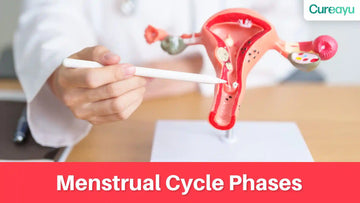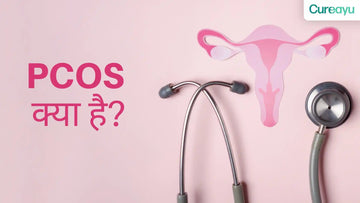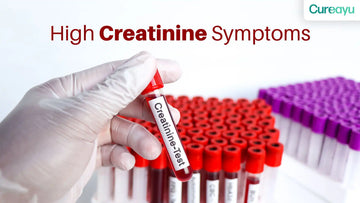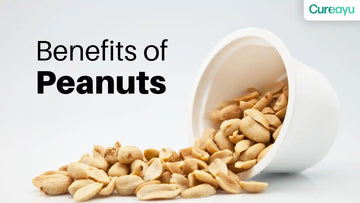Did you know that Polycystic Ovary Syndrome (PCOS) affects approximately 1 in every 5 women in India? This staggering statistic sheds light on the prevalence of this hormonal disorder among Indian women, making it a significant health concern in the country.
What is PCOD?
Polycystic Ovary Disorder (PCOD), also known as Polycystic Ovary Syndrome (PCOS), is a common hormonal disorder among women of reproductive age. It is characterized by irregular menstrual cycles, excessive production of androgens (male hormones), and the presence of small cysts in the ovaries.
Also Read: Decoding Anti-Aging: Symptoms, Causes, Effective Treatments
What is PCOS?
PCOS, often used interchangeably with PCOD, is a syndrome that encompasses a variety of symptoms related to hormonal imbalance and ovarian dysfunction. These symptoms include irregular periods, infertility, acne, weight gain, and excessive hair growth.
Difference Between PCOD & PCOS:
PCOD stands for Polycystic Ovary Disorder, whereas PCOS stands for Polycystic Ovary Syndrome.
PCOD specifically refers to the presence of cysts on the ovaries, while PCOS is a syndrome encompassing multiple symptoms related to hormonal imbalance and ovarian dysfunction.
Scope of Symptoms: PCOS covers a broader range of symptoms compared to PCOD.
PCOS symptoms may include irregular periods, infertility, acne, weight gain, and excessive hair growth, whereas PCOD primarily focuses on irregular menstrual cycles and the presence of ovarian cysts.
What Are The Causes Of PCOD Problems?
The exact cause of PCOD remains unknown, but factors such as genetics, insulin resistance, and hormonal imbalance are believed to play a role in its development.
- Genetics: There is evidence to suggest that PCOD may run in families, indicating a genetic predisposition to the condition.
- Hormonal Imbalance: Fluctuations in hormone levels, particularly elevated levels of androgens (male hormones) such as testosterone, can contribute to the development of PCOD.
- Insulin Resistance: Insulin resistance, a condition in which cells fail to respond to insulin properly, is common in women with PCOD and is thought to play a role in its pathogenesis.
Also Read: Managing Kidney Stones: Insights, Medications, and Ayurvedic Approaches
Symptoms Of PCOD/PCOS
Common symptoms of PCOD/PCOS include irregular menstrual cycles, infertility, weight gain, acne, excessive hair growth (hirsutism), and mood swings.
- Irregular Menstrual Cycles: Women with PCOD/PCOS often experience irregular periods, which may be infrequent, absent, or heavy.
- Infertility: PCOD/PCOS is a leading cause of infertility in women due to irregular ovulation or lack of ovulation altogether.
- Acne: Hormonal fluctuations in PCOD/PCOS can lead to acne breakouts, particularly along the jawline, chin, and cheeks.
- Weight Gain: Elaboration: Insulin resistance and hormonal imbalances associated with PCOD/PCOS can contribute to weight gain, especially around the abdomen.
- Excessive Hair Growth (Hirsutism): Elevated levels of androgens in PCOD/PCOS can cause excessive hair growth in areas typically associated with male-pattern hair growth, such as the face, chest, and back.
PCOD Problem Treatment:
Treatment for PCOD aims to alleviate symptoms and restore hormonal balance.
Lifestyle Modifications: Adopting a healthy lifestyle, including regular exercise and a balanced diet, can help manage symptoms of PCOD.
Medications: Medications such as birth control pills, metformin, and fertility medications may be prescribed to regulate menstrual cycles, improve insulin sensitivity, and induce ovulation.
Surgery: In cases of severe PCOD with large cysts or persistent symptoms, surgery may be recommended to remove cysts or to perform ovarian drilling to induce ovulation.
Also Read: Unveiling the Hidden Factors: Common Causes of Female Infertility Explained
Medicines For PCOD
Various medications are used to manage symptoms of PCOD.
Birth Control Pills: Oral contraceptives can help regulate menstrual cycles and reduce androgen levels in women with PCOD.
Metformin: Metformin, a medication commonly used to treat type 2 diabetes, can improve insulin sensitivity and help regulate menstrual cycles in women with PCOD.
Fertility Medications: Fertility medications such as clomiphene citrate or letrozole may be prescribed to induce ovulation in women with PCOD who are trying to conceive.
Is Pregnancy Possible In PCOD?
Yes, but with Challenges, While PCOD can make conception more difficult due to irregular ovulation, infertility treatments such as ovulation induction or in vitro fertilization (IVF) can help women with PCOD achieve pregnancy.
Consultation with Healthcare Provider: Women with PCOD who are planning to conceive should consult with their healthcare provider to develop a personalized treatment plan tailored to their specific needs and goals.
Ayurvedic Medicine For Polycystic Ovarian Syndrome
Ayurveda, an ancient Indian system of medicine, offers holistic approaches to managing PCOS. Ayurvedic treatments aim to balance the body's doshas (energies) through herbs, diet, and lifestyle modifications. Cureayu PCOD Wellness Capsules are one such Ayurvedic solution, formulated with potent herbs like Arjuna, Lodhra, Shatavari, and Kanchanar Guggulu, known for their ability to regulate hormones, improve ovarian function, and promote overall reproductive health.
Conclusion
PCOD/PCOS can present significant challenges for women, affecting their reproductive health and overall well-being. However, with proper management and treatment, including lifestyle changes, medications, and alternative therapies like Ayurveda, women with PCOD can lead fulfilling lives and achieve their dream of conceiving a child. It's essential for women with PCOD to work closely with their healthcare providers to develop personalized treatment plans tailored to their specific needs and goals. With the right support and resources, pregnancy is indeed possible in PCOD.












